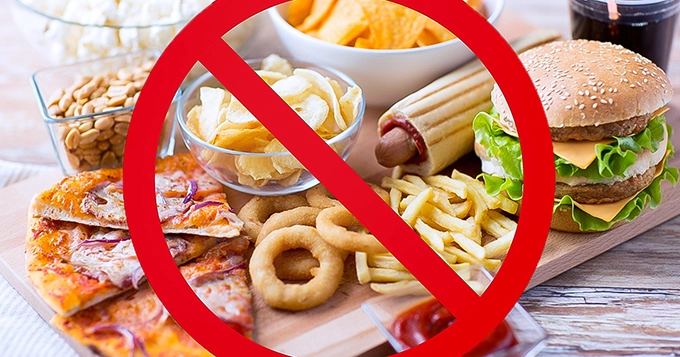Obesity is a major contributor to serious health problems such as heart disease, stroke, type 2 diabetes, and some cancers. These are the leading causes of preventable death, as well as the leading causes of rising medical costs.
Even minor weight loss can result in significant benefits. Even a small weight loss of 5% to 10% of your total body weight is likely to result in health benefits such as lower blood pressure, cholesterol, and blood sugar levels.
Factors That Contribute to Weight Gain in Men
Unhealthy Diet
You consume far too many calories. Overeating is one of the major factors that contribute to weight gain. You will most likely gain weight if you consume more calories than you burn per day. Unhealthy eating habits such as mindless eating, frequent snacking, and making calorie-rich, nutrient-poor dietary choices promote excessive calorie intake.
Not Exercising
People who are less physically active are more likely to gain weight over time than those who exercise 150 to 300 minutes per week.
Environment
Our environment also influences our ability to maintain a healthy weight such as:
- People find it harder to have a physically active lifestyle when there are no nearby parks, sidewalks, or affordable gyms.
- Oversized food portions increase calorie intake in Americans, necessitating even more physical activity to maintain a healthy weight.
- Some people lack access to supermarkets that sell reasonably priced healthy foods like fresh fruits and vegetables.
- People are influenced by food advertising to purchase unhealthy foods such as high-fat snacks and sugary drinks.
Genetics
Obesity is caused by certain genetic disorders such as Prader-Willi syndrome.
Health Conditions and Medications
Some hormonal issues, such as underactive thyroid, Cushing syndrome, and polycystic ovary syndrome, can lead to overweight and obesity. Certain medicines (corticosteroids, antidepressants, and seizure medicines) also may cause weight gain.
Poor Sleep
Inadequate sleep is linked to higher levels of the hormone ghrelin, which increases appetite, and lower levels of the hormone leptin, which makes you feel less full.
High Stress Levels
Stress can lead to the release of hormones that can cause weight gain and can often cause you to engage in unhealthy habits such as stress eating and not getting enough sleep.
Importance of a Healthy Diet and Physical Activities for Weight Loss
When losing weight, more physical activity increases the calories your body uses for energy. The burning of calories through physical activity, combined with reducing the number of calories you eat, creates a calorie deficit that results in weight loss.
Common Challenges Men Face When Trying to Lose Weight
1) Obsessing Over the Numbers
Men weight loss diet can be difficult when you start obsessing over numbers! While the scale can be useful, it is important to avoid becoming obsessed with it. Remember that muscle weighs more than fat, and changes in body composition, as well as water fluctuations, may result in you not seeing an immediate change on the scale.
2) Inappropriate Calorie Intake
Losing weight is difficult enough, but making sure you’re losing fat rather than muscle can be even more difficult. Every body is unique, so remember that there is no such thing as a one-size-fits-all approach to calorie intake. So, make sure you’re aiming for the right number of calories for your specific needs!
3) Over Exercising
Overexercising during your weight loss journey is counterproductive and can have some negative impact on your health. It is critical to remember that exercise builds muscle, which is heavier than fat, so you might find yourself gaining weight on your scale before losing it.
When you’re trying to lose weight, you might think that cutting down on calories is the way to go. However, if you’re not careful, you could also cut out essential nutrients such as protein and fiber.
4) You Have Unrealistic Weight-Loss Goals
Unrealistic goals can lead to disappointment and frustration, leading you to abandon your weight loss journey entirely. Setting attainable goals will help you stay motivated and work towards your ultimate goal of losing weight.
Creating Weight Loss Diet Plan Men Tips
Here are six helpful tips that might help you create the best men weight loss diet plan tailored to your needs and goals.
- The first step in creating a weight loss plan is setting realistic fitness goals. How much weight do you need to lose?
- Assess your activity levels. How many calories do you burn daily?
- A men’s weight loss diet plan will not be successful without considering any dietary requirements for health conditions, culture, and religion.
- How much available time do you have for food preparation and shopping?
- Consider your level of cooking expertise and the difficulty of recipes that fits your diet.
- Does the meal plan need to include other members of the household?
You can sustain your weight loss by maintaining healthy habits such as getting enough sleep every night, eating healthy and within your caloric goal, staying hydrated, and exercising.
If you stay committed to your fitness journey, there’s no doubt you’ll soon eat the fruit of your labor.













